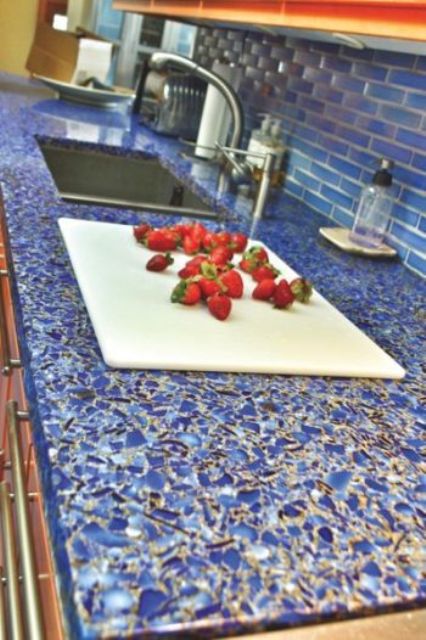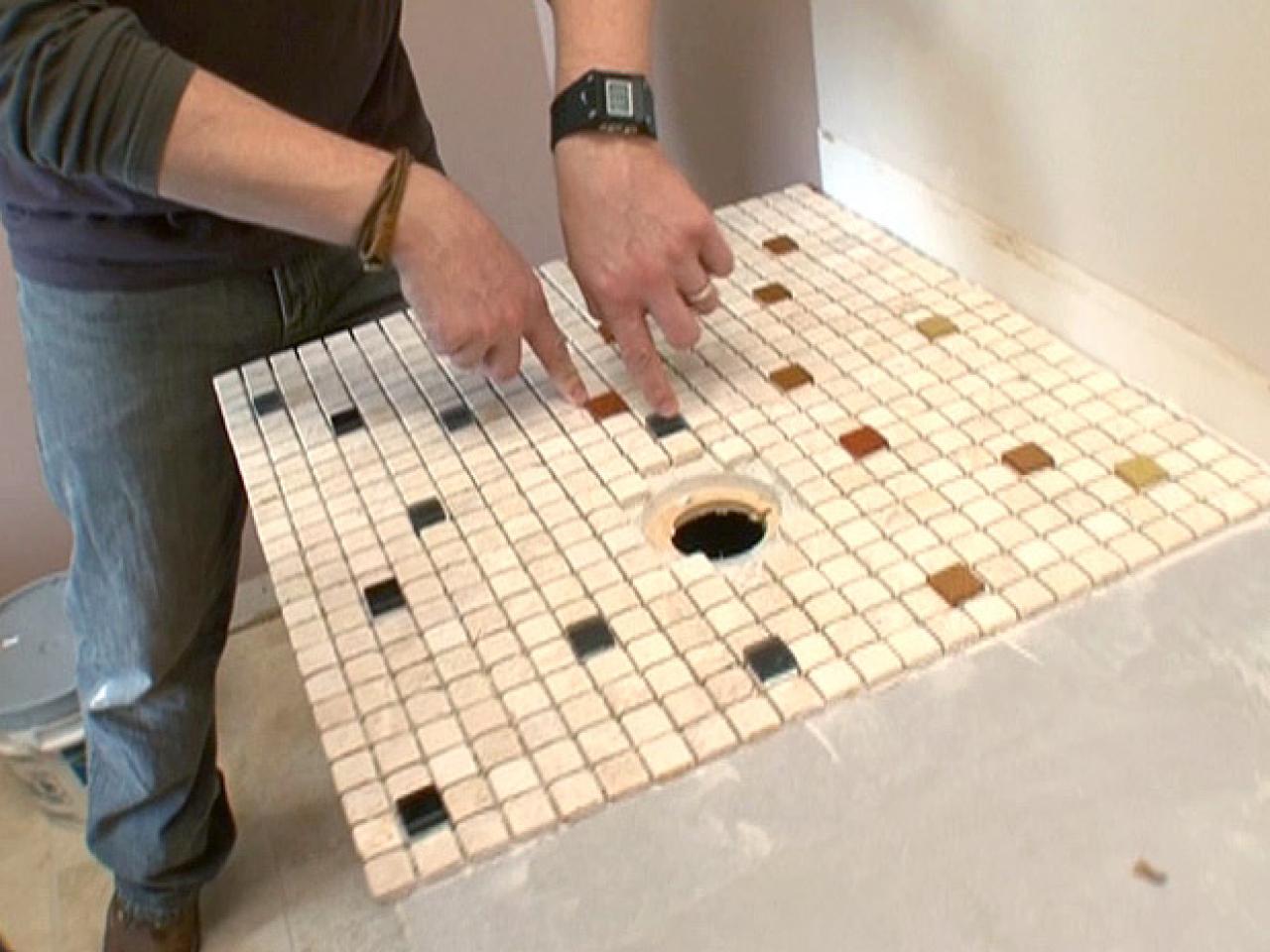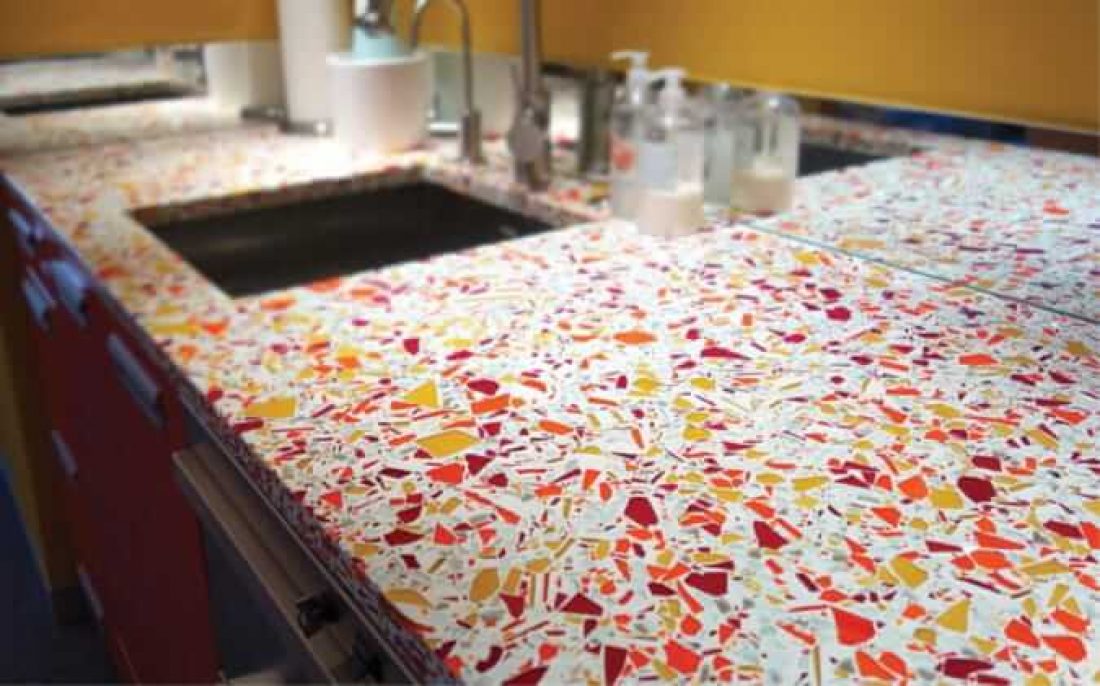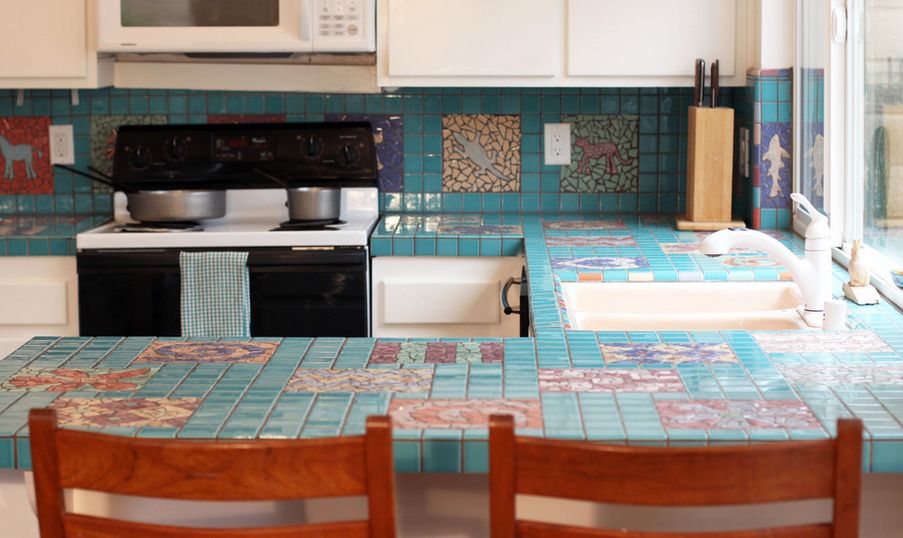Mosaic tile kitchen countertops offer a unique and stylish option for homeowners looking to add personality and charm to their kitchen space. Made up of small tiles arranged in intricate patterns or designs, mosaic tile countertops can be customized to suit any aesthetic preference, from classic to contemporary. In this comprehensive guide, we’ll explore the benefits, design options, installation process, and maintenance tips for mosaic tile kitchen countertops.
Versatility: Mosaic tile countertops are incredibly versatile and can be customized to fit any kitchen style or design preference. Whether you prefer a classic subway tile pattern, a modern geometric design, or a colorful mosaic masterpiece, the possibilities are endless when it comes to mosaic tile countertops.
Design Options: Mosaic tiles come in a wide range of materials, colors, shapes, and sizes, allowing for endless design possibilities. From traditional ceramic and porcelain tiles to natural stone, glass, metal, and even recycled materials, homeowners can mix and match tiles to create unique patterns and designs that reflect their style.
Durability: When properly installed and sealed, mosaic tile kitchen countertops are durable and can withstand the rigors of daily use in the kitchen. Materials like porcelain and natural stone are particularly resilient and resistant to scratches, stains, and heat, making them ideal choices for high-traffic kitchen countertops.
Customization: One of the biggest advantages of mosaic tile countertops is their ability to be completely customized to fit the layout and dimensions of your kitchen. Whether you have a small or large countertop space, curved or straight edges, mosaic tiles can be cut and arranged to fit seamlessly, creating a one-of-a-kind look.

Affordability: Mosaic tile countertops are often more affordable than other countertop materials like granite or quartz, making them an attractive option for homeowners on a budget. Additionally, mosaic tiles can be sourced from a variety of price points, allowing for flexibility in design and budget.
Installation Process: Installing mosaic tile countertops is a relatively straightforward process, especially for homeowners with basic DIY skills. The process typically involves preparing the countertop substrate, applying thin-set mortar, laying the mosaic tiles in the desired pattern, grouting the tiles, and sealing the surface to protect against stains and moisture.
Maintenance: Proper maintenance is key to keeping mosaic tile kitchen countertops looking their best. Regular cleaning with a mild detergent and warm water, followed by periodic resealing of the grout lines, will help prevent staining and keep the tiles looking fresh and vibrant.

Sealing Grout Lines: One common mistake to avoid when installing mosaic tile countertops is neglecting to properly seal the grout lines. Grout is porous and prone to staining and mold growth if left unsealed. Be sure to seal the grout lines with a high-quality grout sealer to protect against moisture and stains.
Using Incorrect Adhesive: Another common mistake is using the wrong type of adhesive or thin-set mortar when installing mosaic tiles. Different tile materials require specific adhesives for proper bonding and durability. Consult with a professional or follow manufacturer recommendations to ensure you’re using the correct adhesive for your mosaic tile countertops.
Uneven Tile Placement: Improperly placed mosaic tiles can result in an uneven or lumpy countertop surface. Take your time when laying out the tiles to ensure they are evenly spaced and aligned, especially along the edges and corners of the countertop.
Neglecting Sealing: Failing to seal the surface and grout lines of mosaic tile countertops can lead to staining, moisture penetration, and mold growth over time. Be sure to seal the entire surface of the countertop, including the grout lines, with a high-quality sealant to protect against these issues.
Ignoring Maintenance: Proper maintenance is essential for preserving the appearance and longevity of mosaic tile countertops. Neglecting regular cleaning and sealing can result in dull, stained, or damaged tiles over time. Be proactive about cleaning spills promptly and resealing the grout lines as needed to keep your countertops looking their best.

Using Abrasive Cleaners: Harsh chemical cleaners and abrasive scrubbing pads can damage the surface of mosaic tile countertops, especially if they are made of softer materials like glass or ceramic. Stick to mild detergent and warm water for regular cleaning, and avoid using abrasive cleaners or scrubbers that can scratch or dull the tiles.
Neglecting Grout Maintenance: Grout is a crucial component of mosaic tile countertops, and it’s important to keep it clean and well-maintained to prevent staining and mold growth. Regularly clean the grout lines with a mildew-resistant grout cleaner and reseal them as needed to protect against moisture and stains.
Skipping Professional Help: While DIY installation of mosaic tile countertops is possible for homeowners with the necessary skills and tools, it’s important to know when to call in the professionals. Complex patterns, challenging layouts, or intricate designs may require the expertise of a professional tile installer to ensure a flawless finish.

Are mosaic tile countertops durable?
When properly installed and sealed, mosaic tile countertops are durable and can withstand the rigors of daily use in the kitchen. Materials like porcelain and natural stone are particularly resilient and resistant to scratches, stains, and heat.
Can mosaic tile countertops be installed over existing countertops?
Yes, mosaic tile countertops can be installed over existing countertops in some cases. However, it’s important to ensure that the existing countertop surface is clean, level, and structurally sound before proceeding with installation.
How do I clean and maintain mosaic tile countertops?
Regular cleaning with a mild detergent and warm water, followed by periodic resealing of the grout lines, is key to maintaining mosaic tile countertops. Avoid using harsh chemical cleaners or abrasive scrubbing pads, as they can damage the surface of the tiles.
Are mosaic tile countertops expensive?
Mosaic tile countertops can vary in price depending on factors such as the type of tile, the size of the countertop, and the complexity of the design. However, they are often more affordable than other countertop materials like granite or quartz.
Can mosaic tile countertops be repaired if damaged?
Minor chips, scratches, or damage to mosaic tile countertops can often be repaired using grout touch-up kits or DIY methods. For more extensive damage, consult with a professional tile installer or contractor for repair options.

Producing Mosaic Countertops – Floor Expo u0026 Design

Tile Countertops Make A Comeback u2013 Know Your Options

DIY Countertops Ideas to Steal

Related articles:
- Kitchen Countertop Ideas
- Cheap Kitchen Countertop Options
- Redoing Kitchen Countertops Yourself
- How To Make A Kitchen Countertop Out Of Wood
- Choosing Kitchen Countertop Colors
- DIY Kitchen Countertops Tile
- Kitchen Countertops Styles
- Decorating Kitchen Countertops
- Cutting Kitchen Countertop Laminate
- Kitchen Countertops Makeover